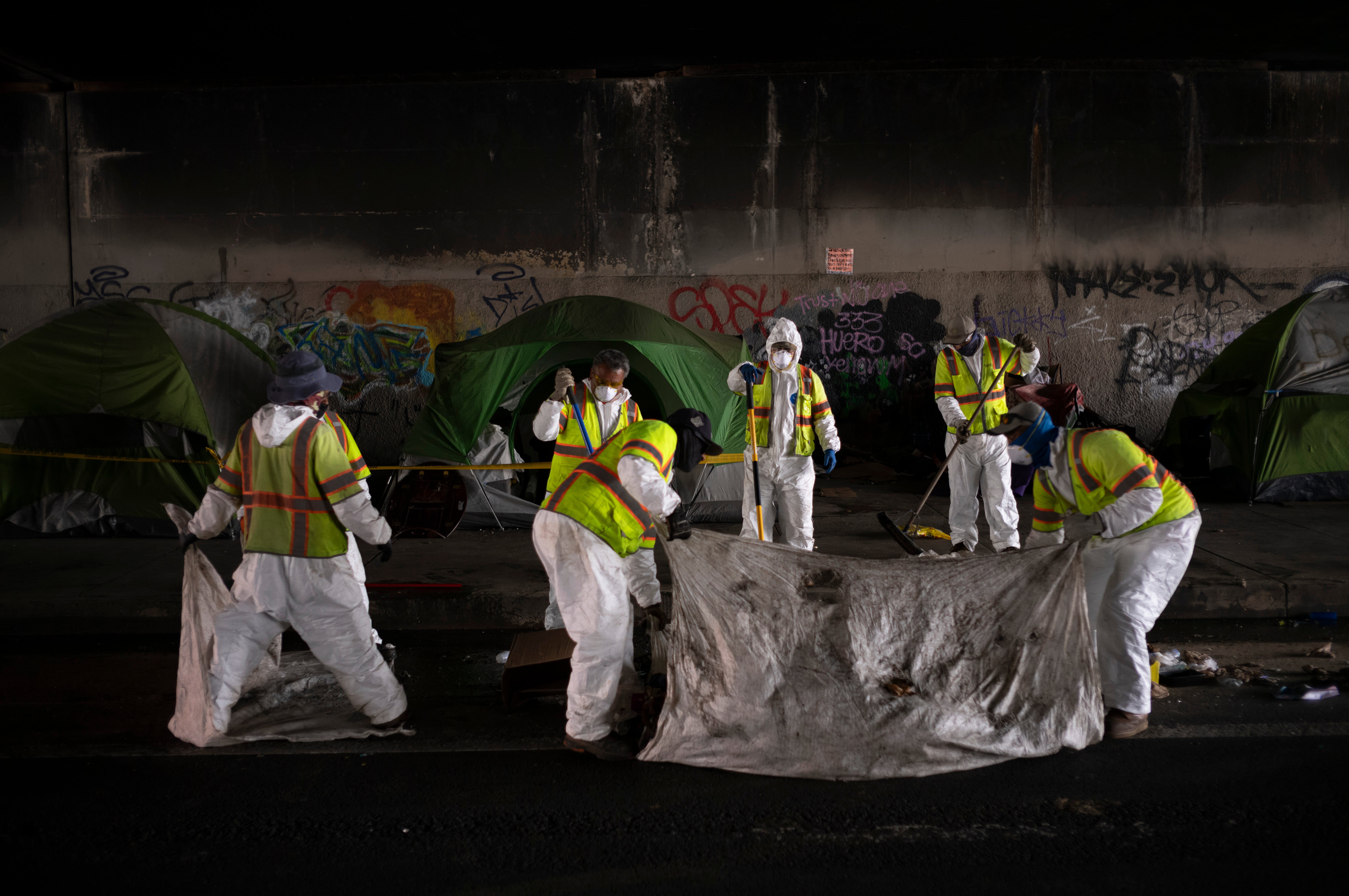Supreme Court to decide if cities can block homeless from sleeping on public streets
The Supreme Court has agreed to review lower-court rulings that make it harder for cities in the western United States to prevent people from sleeping on the streets when there aren’t enough beds in homeless shelters

Your support helps us to tell the story
From reproductive rights to climate change to Big Tech, The Independent is on the ground when the story is developing. Whether it's investigating the financials of Elon Musk's pro-Trump PAC or producing our latest documentary, 'The A Word', which shines a light on the American women fighting for reproductive rights, we know how important it is to parse out the facts from the messaging.
At such a critical moment in US history, we need reporters on the ground. Your donation allows us to keep sending journalists to speak to both sides of the story.
The Independent is trusted by Americans across the entire political spectrum. And unlike many other quality news outlets, we choose not to lock Americans out of our reporting and analysis with paywalls. We believe quality journalism should be available to everyone, paid for by those who can afford it.
Your support makes all the difference.The Supreme Court agreed Friday to review lower-court rulings that make it harder for cities in the western United States to prevent people from sleeping on the streets when there aren’t enough beds in homeless shelters.
The justices will hear an appeal from the city of Grants Pass, in southwest Oregon, that has the backing of California Gov. Gavin Newsom, a Democrat, as well as other Democratic and Republican elected officials who have struggled to deal with homelessness brought on by rising housing costs and income inequality.
The court's action comes a day after a panel of the 9th U.S. Circuit Court of Appeals affirmed a lower-court ruling blocking anti-camping ordinances in San Francisco, where Newsom once was the mayor.
A separate 9th circuit panel ruled in the Oregon case that Grants Pass could not enforce local ordinances that prohibit homeless people “from using a blanket, pillow, or cardboard box for protection from the elements.” The decision applies across nine western states, Alaska, Arizona, California, Hawaii, Idaho, Montana, Nevada, Oregon and Washington.
The two rulings, like a 2018 decision from the 9th circuit in a case from Boise, Idaho, found that punishing people for sleeping on the streets when no alternative shelter is available amounts to “cruel and unusual punishment” in violation of the Constitution.
Elected officials urged the justices to take up the case because they say the rulings complicate their efforts to clear tent encampments, which have long existed in West Coast cities, but have more recently become more common across the U.S. The federal count of homeless people reached 580,000 last year, driven by a lack of affordable housing, a pandemic that economically wrecked households, and a lack of access to mental health and addiction treatment.
Homeless people and their advocates say the sweeps are cruel and a waste of taxpayer money. They say the answer is more housing, not crackdowns.
Cities from Los Angeles to New York have stepped up efforts to clear encampments, records reviewed by The Associated Press show, as public pressure grew to address what some residents say are dangerous and unsanitary living conditions. But despite tens of millions of dollars spent in recent years, there appears to be little reduction in the number of tents propped up on sidewalks, in parks and by freeway off-ramps.
It's unclear whether the case will be argued in the spring or the fall.